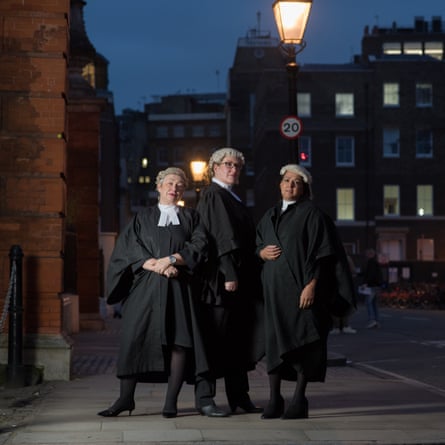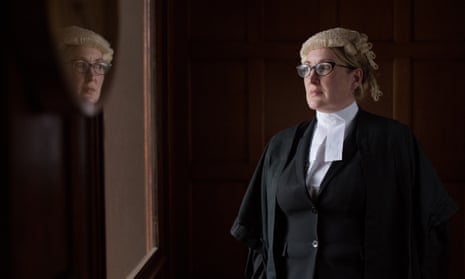A barrister who forged a career in law while raising her son as a single mother has said she hopes her appointment as Queen’s Counsel will be “an encouraging message to non-traditional applicants” to the prestigious title.
Amanda Weston, who specialises in public law, is one of just 32 women to be appointed QC this year, out of 119 successful applicants. “I started my route to the bar with a baby and no income. My mother died when I was a child and I had no family support,” she tells the Guardian.
“But I had secure, subsidised housing, benefits, subsidised childcare and the kind of pastoral support that saw me as a student, not a customer. Teaching work and a cleaning job got me through bar school, and an Inner Temple financial award made all the difference. Would I be able to do the same now? I really don’t know.”
QCs are appointed by the Queen on the advice of the lord chancellor. The award is for excellence in advocacy in the higher courts and it recognises an individual’s depth of expertise and eminence in his or her field.
Women make up just 14.9% of practising QCs. Weston’s colleagues Sonali Naik, Brenda Campbell and Clare Wade, who work at Garden Court chambers in London, will also be formally appointed QCs in February. Together, their stories represent a diversity in life experience that is much needed at the upper tier of the law.

Campbell, who specialises in criminal law, grew up in a small town in Northern Ireland and witnessed the Troubles – her comprehensive school was next to a British army base. She says her biggest career privilege to date has been working as part of the legal team representing the families of Hillsborough victims at the recent inquests into the tragedy.
Wade, also a criminal law specialist, has expertise in representing people with learning disabilities and conditions such as autism. When she had her two children, she found bringing them up was incompatible with working full-time at the bar in criminal practice. She left the bar for more than seven years, working at the Law Commission, before returning and advancing her career as a barrister.
Naik, who specialises in immigration, asylum and public law, was born in Birkenhead a few months after her Indian parents arrived in the UK. She recalls being asked if she would be returning to her “own country” when she was becoming a barrister. Naik spent five years working in law centres, where she says she learned the value of “properly representing people who had no one else to serve their interests”. Only 7.1% of currently practising QCs come from black and minority ethnic (BAME) backgrounds.
Gender and ethnic diversity among QCs is improving, but there is still a long way to go before genuine equality is achieved. Sir Alex Allan, chair of the selection panel, says: “We remain concerned that the number of female applicants remains comparatively low, but I am pleased that of those women who did apply, over 60% were successful. I was also pleased to note that 18 BAME applicants were appointed, a record number.”
In the latest round, 119 QCs were appointed: 87 of them men and 32 women. There is gender parity when lawyers first become barristers, but this tails off as they progress at the bar.
“Most judges have children, but many have not had to address childcare issues in their practice,” says Naik. “The nature of the profession is that you have to be available all the time. Unless there is a change in culture, certain people will be less able to respond to these demands.”
Campbell says the courts’ response to the childcare challenges faced by barristers has improved, “but there’s still a long way to go”. “Judges are more understanding that it isn’t possible to drop your child off at nursery, then travel to a court that might be 200 miles from where you live and arrive there by 9am,” she says.
Juggling children and family life with a demanding career means there’s little time left for networking, which can help barristers gain referees when applying to become QCs. “One of the things I found particularly tricky was establishing enough of a relationship with people who could be potential referees,” says Weston. “I didn’t have the time that some of my male colleagues had to schmooze.”
Sam Mercer, head of equality and diversity at the Bar Council, acknowledges there are problems with achieving equality and diversity at QC level. “We must find out why it is that ethnic minority barristers are less likely to succeed, and we need to work harder to get more women to apply,” she says. “The very best and the brightest in the profession must be recognised, whatever their background. If we exclude under-represented groups from the top ranks, it means we are failing to benefit from their excellence.”
Weston says: “I hope our appointment as silks will send out an encouraging message to non-traditional applicants that they too can do this. It’s great that someone like me can make an impact at the bar, but it is worrying that just at the point we are celebrating diversity, the practical obstacles to the bar for people from my background are getting worse.”








